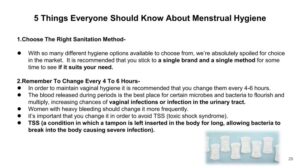
Muscle gain workout plan lays the groundwork for anyone eager to enhance their strength and physique. It encompasses essential components such as tailored workouts, nutritional guidance, and the importance of recovery. By diving into this plan, you’ll discover how to effectively structure your routine, ensuring every session counts toward your muscle-building goals.
In this engaging narrative, we will explore the core elements of a successful muscle gain workout plan, including warm-up and cool-down exercises, a weekly workout schedule, and the critical role nutrition plays in fueling your progress. Get ready to unlock the secrets to maximizing your muscle growth and achieving the results you’ve always desired.
Muscle Gain Workout Plan Basics

An effective muscle gain workout plan is critical for anyone looking to increase their muscle mass and strength. Such a plan encompasses various essential components that work synergistically to promote optimal growth and recovery. Understanding these components will help you craft a personalized approach to your fitness journey.The primary components of a muscle gain workout plan include resistance training, adequate nutrition, rest, and recovery strategies.
Resistance training is crucial as it stimulates muscle fibers, prompting the body to adapt by increasing muscle size and strength. Nutrition plays a pivotal role in muscle growth, with an emphasis on protein intake to support muscle repair and development. Furthermore, sufficient rest is necessary to allow muscles to recover from workouts, preventing overtraining and injuries.
Importance of Warm-Up and Cool-Down Exercises
Incorporating warm-up and cool-down exercises into your muscle gain workout plan is essential for maximizing performance and reducing the risk of injury. Warm-ups prepare your body for the strenuous activity ahead by increasing blood flow and flexibility in the muscles.A proper warm-up routine typically includes dynamic stretches and light cardiovascular activity. This could involve movements such as arm circles, leg swings, or jumping jacks, which elevate the heart rate and promote muscle elasticity.
In contrast, cool-down exercises help to bring your heart rate back to its resting state and can aid in reducing muscle soreness. Static stretching and deep breathing exercises are effective cool-down techniques, promoting relaxation and flexibility after a workout.
Sample Weekly Workout Schedule Tailored for Muscle Gain
When creating a muscle gain workout plan, a structured weekly schedule is vital for consistency and progress. Below is a sample weekly workout routine designed to target all major muscle groups while allowing adequate recovery time.This schedule includes a mix of compound and isolation exercises, promoting overall strength and hypertrophy.
| Day | Workout Focus | Example Exercises |
|---|---|---|
| Monday | Chest and Triceps | Bench Press, Incline Dumbbell Press, Tricep Dips |
| Tuesday | Back and Biceps | Deadlifts, Pull-Ups, Barbell Rows |
| Wednesday | Legs | Squats, Lunges, Leg Press |
| Thursday | Shoulders and Abs | Overhead Press, Lateral Raises, Plank |
| Friday | Full Body | Clean and Press, Snatch, Kettlebell Swings |
| Saturday | Active Recovery | Light Cardio, Stretching, Yoga |
| Sunday | Rest | – |
This weekly schedule emphasizes the importance of targeting different muscle groups while also incorporating rest and recovery days to facilitate muscle growth. By following a structured plan, individuals can monitor their progress and make adjustments as necessary, leading to effective muscle gain over time.
Nutrition for Muscle Gain

Nutrition plays a vital role in muscle gain, representing a significant part of any successful workout plan. Fueling your body with the right nutrients not only supports muscle recovery but also enhances overall performance. Understanding the essential nutrients and meal timing can maximize your gains and help you achieve your fitness goals more effectively.Key nutrients essential for muscle growth include proteins, carbohydrates, and fats.
These macronutrients work together to provide the energy needed for workouts and the building blocks required for muscle repair and growth. Adequate vitamins and minerals, such as B vitamins, vitamin D, and minerals like zinc and magnesium, also play a supportive role in muscle function and recovery.
Essential Nutrients for Muscle Growth
To maximize muscle growth, it’s important to focus on the following key nutrients:
- Proteins: Vital for muscle repair and growth, aim for 1.6 to 2.2 grams of protein per kilogram of body weight.
- Carbohydrates: They provide the necessary energy for workouts and should comprise about 45-60% of your total caloric intake.
- Fats: Healthy fats are essential for hormone production and overall health, making up about 20-35% of your diet.
Muscle Gain Meal Plan Breakdown
A well-structured meal plan ensures you’re getting the right macronutrient ratios to support muscle gain. Below is a sample meal plan with suggested macronutrient ratios for an average muscle-gaining diet aimed at a daily intake of 3000 calories:
| Meal | Food Item | Protein (g) | Carbohydrates (g) | Fats (g) |
|---|---|---|---|---|
| Breakfast | Oatmeal with protein powder and berries | 30 | 60 | 10 |
| Snack | Greek yogurt and honey | 20 | 30 | 5 |
| Lunch | Grilled chicken with quinoa and vegetables | 40 | 50 | 15 |
| Dinner | Salmon, brown rice, and broccoli | 50 | 45 | 20 |
| Post-Workout | Protein shake with banana | 30 | 25 | 5 |
This meal plan provides a balanced distribution of macronutrients, focusing heavily on protein and carbohydrates to support muscle recovery and growth.
Meal Timing and Supplementation
The timing of meals and supplements can significantly impact muscle gain. It’s critical to consume protein and carbohydrates both before and after workouts to optimize performance and recovery. The general recommendations suggest:
- Having a protein-rich meal or snack 30 minutes to an hour before workouts to fuel your session.
- Consuming a post-workout meal that includes protein and carbohydrates within 30 minutes after exercise to enhance recovery.
- Consider supplements such as whey protein, creatine, and branched-chain amino acids (BCAAs) for added muscle support, especially around workout times.
By ensuring you’re consuming the right nutrients at the right times, you’ll enhance your muscle-building efforts and improve your overall results.
Related Health Topics
Mental health plays a significant role in physical performance and muscle gain. Understanding the connection between the mind and body can enhance your fitness journey and create a better overall environment for muscle development. Each aspect of health, from psychological well-being to physical activity, contributes to the effectiveness of your muscle gain efforts.
Mental Health and Physical Performance
A strong correlation exists between mental health and physical performance, particularly in the context of muscle gain. Stress, anxiety, and depression can hinder motivation and energy levels, leading to suboptimal workout sessions. When individuals experience heightened stress, the body produces cortisol, a hormone that can negatively impact muscle growth by inhibiting protein synthesis. Moreover, a positive mindset enhances focus and determination, which can directly improve workout efficiency and outcomes.
“Optimizing mental health is just as crucial as following a workout routine for effective muscle gain.”
Incorporating mental health practices such as mindfulness, meditation, or even counseling can foster a more conducive environment for muscle development. Activities like yoga not only improve flexibility and strength but also reduce stress levels, promoting overall well-being.
Impact of Fitness Regimes on Weight Loss and Muscle Gain
Different fitness regimes can yield varying results in terms of weight loss and muscle gain. Understanding these differences allows for a more targeted approach based on individual fitness goals.Strength training regimes, characterized by exercises focusing on resistance and lifting weights, primarily promote muscle gain. Consistent heavy lifting stimulates muscle fibers, resulting in hypertrophy and increased muscle mass. For example, a study published in the Journal of Strength and Conditioning Research found that participants engaging in strength training three times a week experienced significant muscle growth compared to those who did not lift weights.On the other hand, cardiovascular-focused workouts, such as running or cycling, are typically more effective for weight loss.
These activities burn calories and can lead to a caloric deficit, essential for shedding excess fat. It’s important to note that combining both strength and cardio can maximize results, as a balanced approach supports both muscle growth and fat loss while improving overall fitness.
Alternative Treatments for Muscle Recovery
Alternative treatments can significantly enhance muscle recovery and overall fitness. These methods, often complementary to traditional exercise regimens, can provide additional benefits for those looking to optimize their muscle gain journey. Techniques such as massage therapy, acupuncture, and cryotherapy have gained popularity among fitness enthusiasts. Each of these treatments offers unique advantages:
Massage Therapy
Helps alleviate muscle soreness and tension, promoting blood circulation and aiding recovery.
Acupuncture
Can reduce inflammation and pain, facilitating faster recovery from intense workouts by targeting specific pressure points in the body.
Cryotherapy
Involves exposing the body to extremely cold temperatures, which can help reduce muscle inflammation and expedite recovery.Integrating these alternative treatments into a regular fitness routine can lead to improved performance and a more efficient muscle recovery process, helping individuals reach their goals more effectively.
Closing Summary
In conclusion, a well-rounded muscle gain workout plan is not just about lifting weights; it’s an intricate balance of exercise, nutrition, and recovery. By understanding the components Artikeld in this guide, you’ll be better prepared to embark on your fitness journey with confidence. Remember, consistency and dedication are key to transforming your body and reaching your muscle gain aspirations.
Frequently Asked Questions
What is the best time to work out for muscle gain?
The best time to work out for muscle gain varies by individual, but many find that late afternoon or early evening sessions align well with peak energy levels and performance.
How many days a week should I work out for muscle gain?
Aim for 3 to 5 days a week, allowing for rest days in between to facilitate muscle recovery and growth.
Can I gain muscle while doing cardio?
Yes, you can gain muscle while doing cardio, but it’s essential to balance the two and ensure that your strength training remains the primary focus of your routine.
What should I eat before and after my workouts?
Before workouts, consume a meal rich in carbohydrates and protein for energy, and after workouts, focus on protein and healthy fats to support recovery and muscle repair.
How long will it take to see results from a muscle gain workout plan?
Results can vary based on consistency and individual factors, but generally, noticeable changes can be seen within 4 to 8 weeks of following a dedicated muscle gain workout plan.





